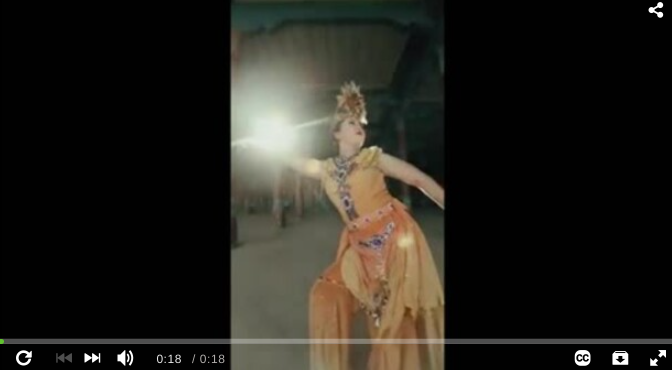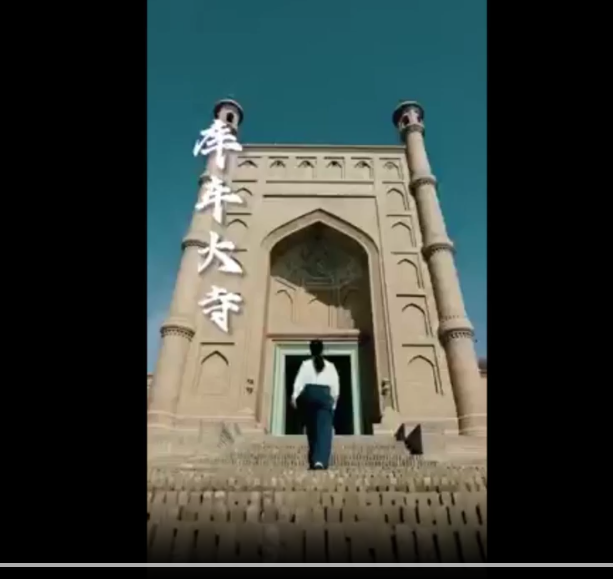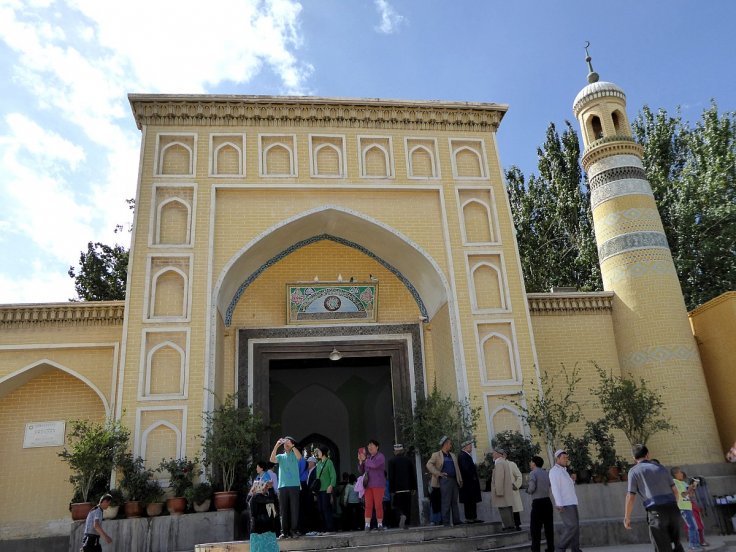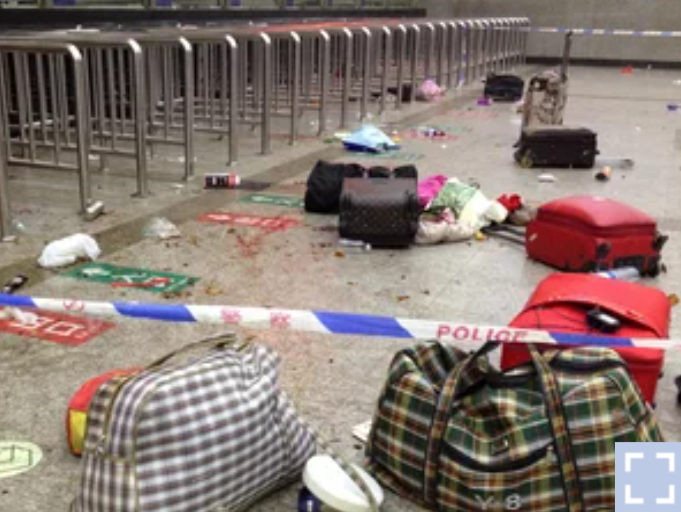A promotional video released by China's tourism department shows a costumed woman dancing inside the second largest mosque in Xinjiang. The video was released during the month of Ramadan fasting and was shot inside the prayer hall of the mosque that was originally built in the 16th century.
The promotional video begins by showing a woman walking up the steps of the grand mosque in Kuchar. "[When you] open the heavy door of Kuchar Grand Mosque, a beautiful Qiuci woman, concealed by a veil, steps forward, and shares memories of the Woman's Kingdom with you," narrator says in the video, according to Radio Free Asia.

The news outlet explains that the video features a dance from 'Women's Kingdom' which is a Buddhist fantasy drama. The woman is apparently the queen in the drama who sought to marry the Ming Dynasty protagonist.
China emphasizes the Buddhist past of the Xinjiang region and makes it a point to showcase this to the Han Chinese tourists who want to visit the region. Qiuci is the Chinese moniker for the medieval Buddhist kingdom of Kusen, which is near the modern-day Kuchar, where the Uighur grand mosque is situated.
The video shows the woman, in a costume that bares her arms, twirling the prayer hall. The video was circulated on Douyin, which is the Chinese version of Tiktok. It was then shared on Facebook by Uyghur activist Zumret Dawut, according to RFA.

"The message [of the video] to the Uyghurs is that we can suppress and even destroy you by assaulting and breaking your dignity through humiliation – we can do anything we want to do," RFA cited an official of the World Uyghur Congress as saying.
China's Iron Hand in Xinjiang
Control China has rolled out a strict control over the open practice of Islam in the Xinjiang region, where close to ten million Muslims live. There have been reports this year as well that Beijing clamped down on the practice of Ramadan fasting in the region. "No one is allowed to fast in this Ramadan," a local police officer said, according to RFA. The government prohibited everyone from fasting regardless of age, gender or profession, the report added.
The Chinese suppression of the Muslim minority came in the wake of a separatist movement that aimed at establishing an independent nation called East Turkestan in the region. Uighur separatism had triggered violence in the region, with numerous knife attacks targeting Chinese law enforcement officers and Han Chinese citizens.

Kunming Knife Attack in 2014 Killed 29
A knife attack in Kunming in Xinjiang killed 29 people in 2014. More than 130 people were injured in the attack, which was carried out by eight knife-wielding Uighur separatists. China said the attack, which was carried out at the Kunming city railway station as "an act of terrorism".

In 2013, another terror attack at China's Tianenmen Square killed three tourists. Beijing said the attack was carried out by Uighur Muslim separatists.
China targeted the Uighur Muslim religious fundamentalism that drove the separatism, and moved hundreds of thousands of Uighurs into the so-called 're-education camps', a move that attracted international condemnation. China, however, insists that it is only trying to reform extremist Muslims. In 2019, Chinese Foreign Minister Wang Yi said the detention centers were "schools that help people free themselves from extremism."
Anti-Terror Legislation
The anti terror law that China passed in 2015 banned people in the region from wearing full-face coverings and long beards.
A document leaked from a Chinese government database in 2022 showed that Beijing views the Muslim population in Xinjiang as "a paramount national security challenge." China says the Turkic-speaking native people of the Xinjiang region support terrorism and secessionism. Knife attacks by Uighur rebels were a common feature in the last several years, until Beijing tightened the grip on the region after Xi Jinping became the president.
In 2018, Zhao Kezhi, China's minister of public security, said in a speech that the crackdown in Xinjiang started after a string of violent attacks during 2013-14. "Xinjiang has 2 million people who have been influenced by pro-Xinjiang independence and "Double-Pan" [pan-Turkish and pan-Islamist] thinking...," the minister said.
A 2021 report that emerged at a time when Muslims around the world were celebrating a Edi-al Fitr said China's Communist government imprisoned as many as 630 imams in the Xinjiang region. More than a dozen of the imams died in detention, the report added. They were sent to jail on grounds that they were "propagating extremism" and gathering crowds to disturb social order.
Of nearly 10 million Uighur Muslims in the region, nearly two million are in various forms of imprisonment, mostly held in a vast network of internment camps where Muslims are forced to undergo cultural transformation.









